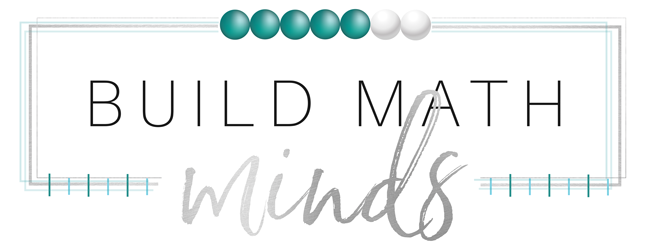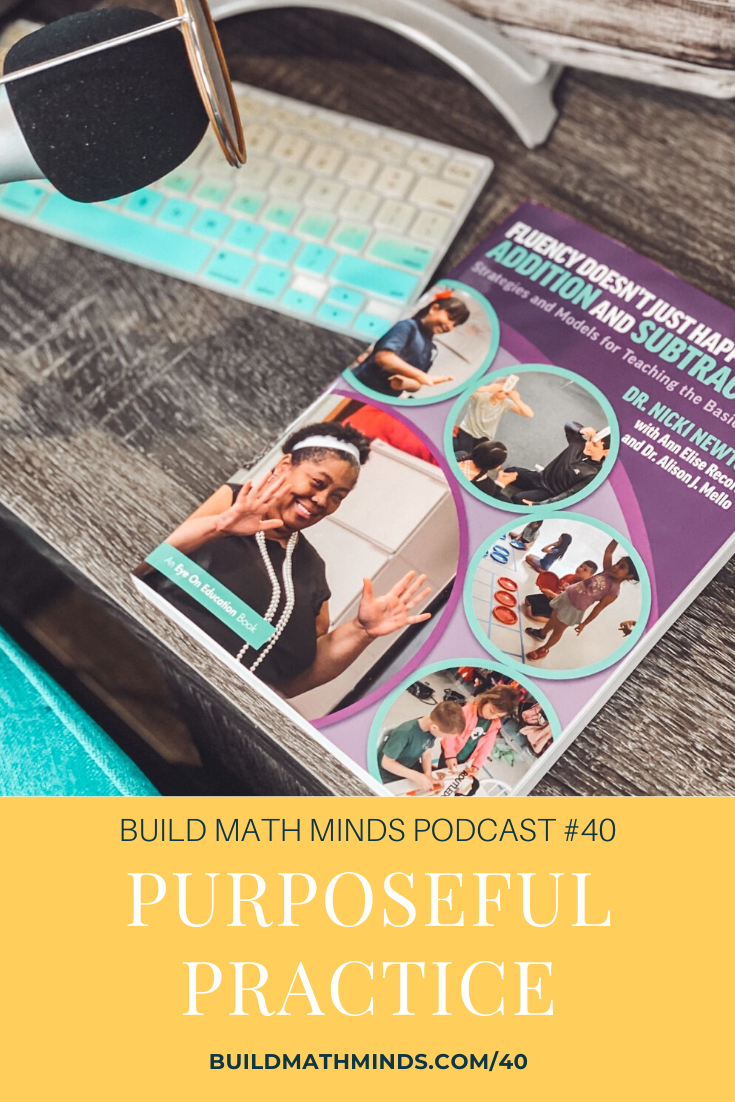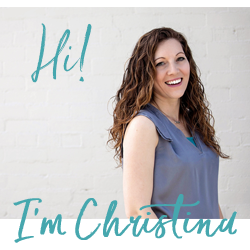Resources mentioned in this episode:
Fluency Doesn’t Just Happen with Addition and Subtraction: Strategies and Models for Teaching the Basic Facts by Dr. Nicki Newton, Ann Elise Record, and Dr. Alison J. Mello
Free Build Math Minds Facebook group
Welcome fellow Recovering Traditionalists to Episode 40. Today we take a look at Purposeful Practice.
If you have been around Build Math Minds for anytime, you should be familiar with Ann Elise Record. She helps me manage the free Facebook group as well as creating videos that are inside the paid Build Math Minds PD site.
Well, Ann Elise got to team up with Dr. Nicki Newton and Dr. Alison J. Mello for the book Fluency Doesn’t Just Happen with Addition and Subtraction: Strategies and Models for Teaching the Basic Facts.
I just got this book about a week ago. I’m so excited they are done with it and it’s available for all of you to purchase.
In this episode I wanted to share a part of the book that I have read about Purposeful Practice and I double underlined it as I was reading.
On page 10, they write:
“Leveling workstations addresses the idea that meaningful practice should be individualized (Van de Walle & Lovin, 2006). When students are working in their zone of proximal development (Vygotsky, 1978), then they are not bored or frustrated. They can actually build a solid foundation of understanding. This specifically looks like some students working on making ten facts and other students working on making doubles. Everyone is working towards the grade level standard but at their own pace. In literacy we would never say that everyone has to read the same books at the same time, but in math we do exactly that! It doesn’t work for literacy and it doesn’t work for math either. Students will progress towards grade level standards at different times and that should be expected and respected.”
I love that! We don’t have all the kids read the same book in reading. Now there are definitely times we have them read the same passages so that we can have a common conversation about things, but we also have times that kids are reading books at their level.
We need to do the same for our students when it comes to math. The book Fluency Doesn’t Just Happen is your guide for that. The book is full of what to expect as kids are building their fluency and ideas on how to respect that. What do you actually do in your classroom to allow students to work in their zone of proximal development when it comes to addition and subtraction facts? You will find all of that in this book.
Now remember with all of these episodes I don’t go deep into the book or article because if this is an area you want to learn more about, then I want you to go learn it straight from the source. We are all different learners and teachers and what I take away from a book or article might be different than what you take away. So if you want to learn more about how to build fluency with the basic addition and subtraction facts, then this book is for you. I’ll link to it on the show notes page buildmathminds.com/40
Subscribe and Review in iTunes
Hey, are you subscribed to the Build Math Minds Podcast, yet? If you’re not, make sure to do that today because I don’t want you to miss any episodes! Click here to subscribe to the podcast in iTunes.
While you’re there, don’t forget to leave a review on iTunes too. I would love to know your thoughts and how we can make sure that we give you content that you will really enjoy.
To leave a review, head over to iTunes and click on “Ratings and Reviews” and “Write a Review.” I can’t wait to hear your thoughts about the podcast.




